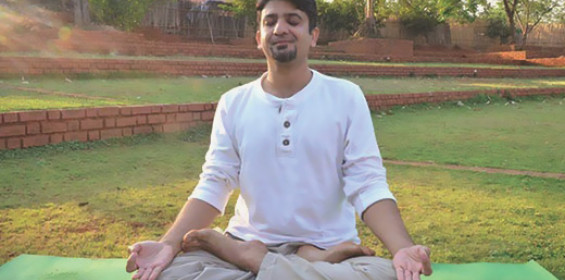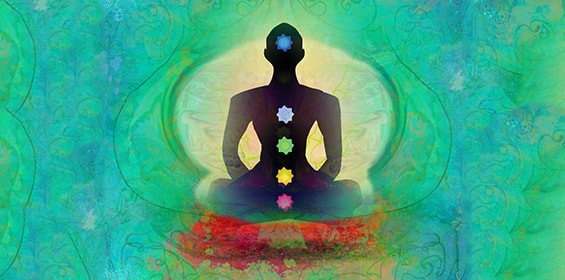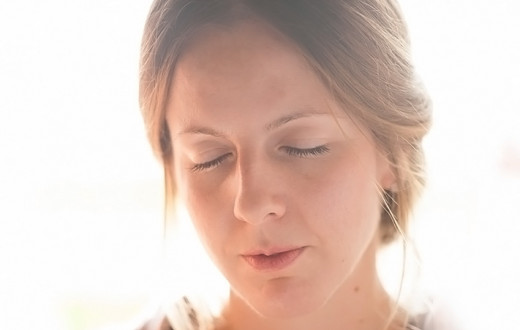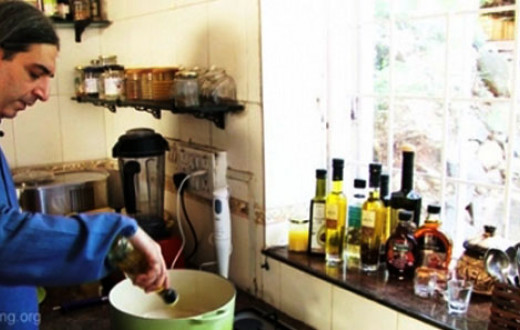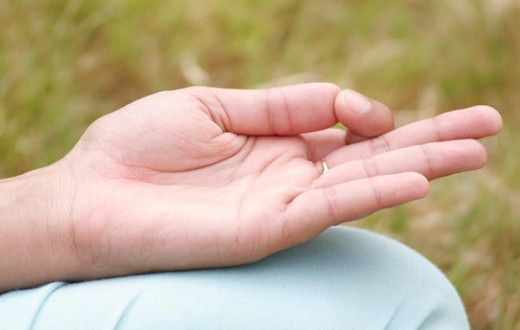How meditation can help you overcome your postnatal depression
Congratulations! Your baby is so cute. I can’t imagine how proud and happy you must feel!
Thanks. Everyone seemed to miss the listlessness in Vaishnavi’s (name changed) response. Perhaps they attributed it to her weariness.
Vaishnavi had always wanted a girl. But this one seemed unappeasable. First, she wouldn’t latch on to feed, then, when she did, she seemed colicky… crying after feeding and crying when not. She seemed to test Vaishnavi’s thinning patience by constantly kicking her C-section stitches! Worst of all, she wouldn’t allow anyone else to hold her. The disproportionate vocal cords she displayed when anyone tried to relieve Vaishnavi of her!
Her supportive husband had bought her that beautiful pink feeding pillow so she wouldn’t have to carry her baby. He also took time off work to be available to her and the baby. Still, Vaishnavi felt like she was lugging around dead weight. Contradictorily, there was also a vacuum inside of her, making her feel heavy and hollow at the same time. I’m like a mine after the gold has been extracted, she told herself.
Finally, her doctor put her finger on the problem and gave it a name: postnatal depression. Depression? After having a healthy baby? ‘What’s wrong with me?’ was her first thought. ‘Am I losing grip?’
No, Vaishnavi was not crazy. She was, in fact, experiencing postnatal depression.
Possible reasons for postnatal depression
- Unplanned pregnancy or early or late pregnancy
- Long and/ difficult labor or delivery, complications in C-section
- Pain post delivery
- Fatigue and inadequate sleep
- Hormonal changes
- Lack of support system either from a spouse or family
- Anxiety regarding career
- A drastic change in lifestyle and pattern of life
- Baby is unhealthy and constantly ill or specially-abled
- A family history of depression
- A traumatic period in life e.g. death, or illness of a family relative
- Unnatural expectations of new mothers to be superwomen, who can handle it ‘all’
Signs of postpartum depression
Silent, sudden, strenuous… this depression can slowly suck all joy and energy out of you and leave you feeling blank. Strangely, rather than sadness, sometimes, you feel nothing.

(1) Downward spiral: Here’s an unpleasant fact they don’t tell you about becoming a mother. All moms feel slightly out of sorts after delivery. You, probably, won’t feel explicitly happy at once or all the time after you have a baby. But, with postnatal depression, the dip in your mood doesn’t go away even after the initial fortnight of adjustment.
(2) Anxiety and guilt: The feeling that you don’t seem as thrilled as you ‘should feel’ slowly translates into guilt within you. If you are a working mom, you might pump your breast milk into a bottle for the baby. There is always a higher risk of infection for bottle-fed babies. These thoughts of anxiety could gnaw into the little bit of precious, broken sleep that you are granted, burying you deeper in the tunnel of depression.
(3) Crying spells: There are times the stress and mounting pressure just get to you and you become unreasonably irritable. Don’t be surprised if you end up crying into your pillow: suddenly, without warning. This happens more often with postpartum depression.
(4) No bonding with baby: Generally, when you see your newborn baby, you want to hug it closely, and kiss it a million times! This feeling might be absent in someone who is experiencing postpartum depression. You might feel a sense of separation or lack of feeling towards your little one. In extreme cases, some women even want to harm their baby.
If it didn’t seem like a real problem before, I hope it sounds serious enough now: to acknowledge and address. Many women don’t know what to do or whom to turn to. The helplessness and desperation should be treated on time to avoid serious consequences.
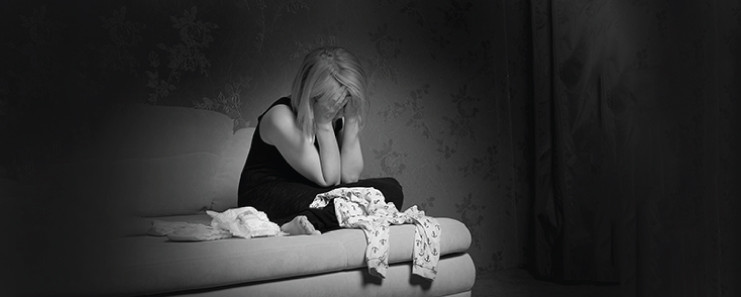
How to treat postpartum depression
There are many ways to treat postpartum depression. Some doctors may ask you to wait for it to pass on its own as Vaishnavi’s did. It’s great if this works for you!
Others may prescribe pills to you. The problem with pills is that they are just a temporary mechanism to manage depression. How long will you take pills? It can affect your breast milk and your mood, making you more unfit to look after your baby.
Still others will ask you to give meditation a chance! We belong to the third category: meditation over medication.
Here’s how meditation can help you at this critical time.
A. Rest
This is the best gift of meditation. By ensuring you focus on your breath and your ‘self’, meditation makes you stay in the present, experiencing yourself. When you only think of what you are doing at that very moment, you feel the burden of the to-do list easing. You sink into a soothing and restful space that helps you gather your strength and face your new life.

B. Clarity and confidence
The life of a newborn is in your hands. Suddenly, there are a host of questions you need to answer and act upon. Perhaps with zero experience under your belt. Do you nurse the baby or pump your milk into a bottle and then feed? Is gripe water still relevant? Is your baby having jaundice? Is that normal? Is he/she latching on to you correctly, and is the feed correctly entering his/her system? When do you start solids and water? Is his/her feces the right color?!
All this responsibility falls on your able, but weary shoulders. Meditation can help you think rationally - with clarity in these trying times. It builds confidence rather than stress because it helps you start from a space of calmness and self-belief. When you tackle these issues one by one, rather than altogether, they don’t become formidable and insurmountable barriers in your path.
C. Awareness
Babies cry in various, different ways to indicate hunger, weariness, sleepiness, discomfort, pain and the need to snuggle! With your powers of discernment not at their highest, courtesy inadequate sleep and rest, you might fumble on how to deal with the baby when he/she cries. This can be very frustrating.

Meditation can help sharpen your acumen, attuning you to the needs of the baby. When you can identify and recognize the different cries, you feel a special connection with your baby. Like he/she is communicating in a special language that only you can understand. The beginning of bonding is the first step out of depression.
So, what do you say? Want to give it a try?
I can, fully, appreciate the extreme time crunch and the total absence of focus on your self at this point in your life. But, these simple methods of meditating can be harmoniously entwined in your new routine.
Do 2-3 Yoga nidras every day – As a new mother, you are one of the most sleep-deprived people out there. And, you sorely need the rest after you have carried and delivered the baby over nine months! When you do get to sleep, it is mired in anxiety - with the next 20 chores racing through your mind.
Yoga nidra can help you optimize your sleep time, ensuring you get complete and wholesome rest for the period you are resting. When you rest with awareness a la a power nap, you wake up feeling fresh and energized.
Gurudev Sri Sri Ravi Shankar’s guided meditation – The soft call to let it go, surrender and focus on the breath has the magical effect of making you calm and relaxed. In this state, you will be raring to take on all the new challenges ahead of you. Resting with meditation will help achieve your equilibrium vis-à-vis both your lifestyle and body changes. Simple sleep leaves you craving for more, while meditation leaves you feeling rejuvenated.
Sahaj Samadhi Meditation – This effortless and natural form of meditation allows you to access your deep and inner space to the source of your energy and love. While, at first, this meditation could be difficult, because you are too fatigued, you could consider easing your way into it, as you regain your vigor.
No one can fault a mother for going through postnatal depression. As normal as the process of pregnancy and delivery is, it is okay if you need some help dealing with your new life. Open up about what you are going through to begin a faster exit from the gloom. And, remember that it won’t always be like this. You can regain the life you used to have sooner than you think! You might even end up missing this beautiful phase.
My doctor likened pregnancy and delivery to running a marathon. She told me, “You are not ill. It is a normal body condition. But just as you need a break after running a marathon, you need rest and the time to recuperate post-delivery.” So, ask for help. Take time-outs, step out of the house, experience other things, and allow yourself breathers in between the endless chores. In the long run, it is the best gift you can give your baby – a healthy and happy you!
You can also read more about how yoga can help you overcome postnatal depression.
(Written by Anusha Chellappa with inputs from Prajakti Deshmukh, Faculty, Art of Living)

